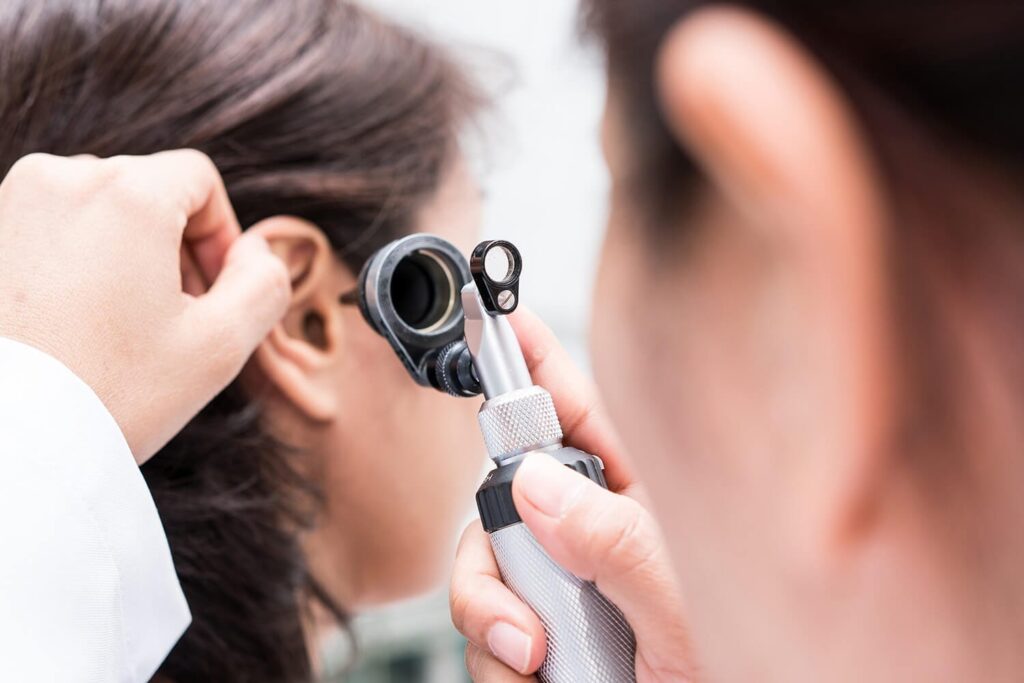Dental and overall healthcare check-ups are always on our do-to lists. But it’s always our ears that we tend to neglect!
Healthy ears with a strong hearing ability promote good life by facilitating communication to bond with others. However, this sensitive sensory organ is often subjected to loud noises, which, in turn, might deteriorate its health in the long run.
Other common reasons for impaired hearing might be age or other medical factors. Irrespective of the cause, it’s a good idea to get your hearing tested as soon as possible if and when you experience the evident signs.
When it comes to visiting an audiologist, most of us tend to get confused about when and how often ears should be tested. That’s why we’ve come forward with this brief yet informative guide.
Read on to know all the basic details of having your hearing tested.
When Should You Have Your Hearing Tested?
1. In Case Of Confirmed Hearing Loss
It’s better to get retested from time to time, especially if you’re already aware of your hearing loss issues through past screening. Pay close attention to any change that you might come across, and get it checked immediately.
You’ll also need to visit your hearing care provider to get your hearing aid checked and adjusted. In case your hearing loss has progressed to something more severe, you might even need to replace it with a new pair.
2. In Case Of Suspected Hearing Loss
Most people after the age of 50 experience their first hearing loss signs. However, children and young adults might also suffer from impaired hearing. The gradual onset might go unnoticed at first, but eventually, the signs become apparent. That’s when you should go and have your ears tested.
How Often Should You Have Your Hearing Tested?
There’s no denying that regular hearing check-ups are important to determine if there’s any change in your hearing capabilities. But the exact frequency will depend on the following factors.
1. Age
Hearing capability deteriorates with age – something that’s commonly referred to as Presbycusis, aka, age-related hearing loss. The damage of the inner ear cells becomes more prevalent, affecting the abilities of people to hear high sound frequencies (more than 2,000 Hz to 5,000 Hz).
Elderly people above the age of 60 should go for one or two hearing tests every year, irrespective of whether they are experiencing hearing loss symptoms or not.
2. Constant Exposure To Loud Noises
People who are constantly exposed to loud and jarring noises are at high risks of suffering from permanent hearing loss. That said, if you work in a noisy environment, such as construction sites, a club, or engage in activities like motorcycle riding, have your hearing tested at least once a year.
Hearing Test Procedure
Ideally, hearing tests are conducted in soundproof rooms or cabins, where you’ll be asked a couple of questions as part of an initial assessment. Then, sounds with varying frequencies ranging from 25 Hz to 8,000 Hz will be played via headphones.

They will be played in each ear individually, starting from the lowest frequency, which is inaudible. The volume will then be slowly increased, and you’ll have to press a button, indicating your ability to hear the audio.
Once that’s done, the exact test will be performed again using vibrations on your skull. This is usually done to determine if your inner ear is damaged.
An audiogram will be used to evaluate the conducted test. It generally displays sounds on scales, providing the required information in decibels on the hearing threshold level.
This will help the audiologist identify the deviations in frequencies to diagnose the type of hearing loss you’re likely experiencing. Consequently, you’ll be recommended a suitable hearing aid if needed.
Is It Time For You To Get A Hearing Test?
There are a few self-evaluation questions to ask yourself before heading to a hearing care provider for testing. Do you have to ask others to speak loudly during a conversation? Are you hearing noises inside your ears? Or are you facing difficulties in having a telephonic conversation?
If the common answer to all these questions is yes, it’s recommended that you get your ears checked. You’re more likely to benefit from getting a hearing test early on as it will be easier to nip it in the bud.
After all, hearing loss, if left untreated for a longer time, will make it more challenging to improve your hearing. By then, your options of treating the problem might even become more limited.
That said, even if you’re a healthy adult who’s not experiencing any signs of hearing loss, it’s advisable to have your hearing tested every three to five years.
On that note, we’ll sign off. Till next time!

